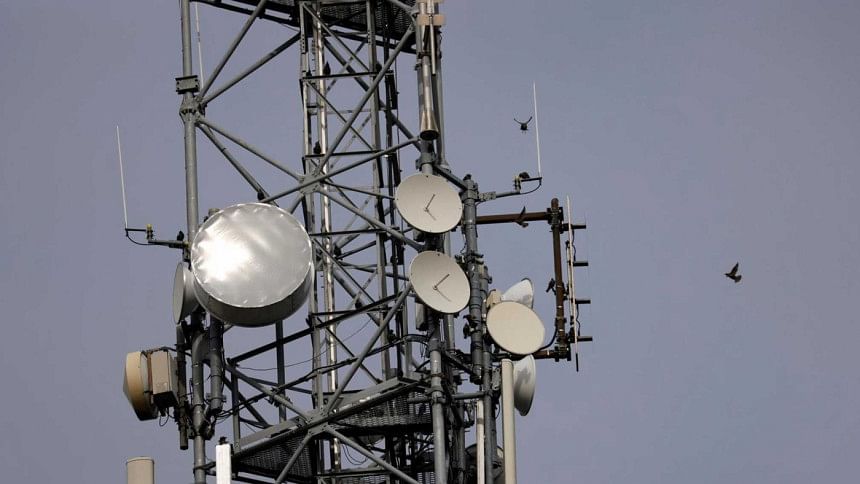BTRC’s independence is key to innovative telecom marketplace

The draft of Bangladesh Telecommunication Regulation Act, 2021 does not have the word "independent" in relation to the BTRC, according to a report by The Daily Star published on September 7, 2021. The report says if this act gets approved by the government, the Bangladesh Telecommunication Regulatory Commission (BTRC) will have to wait for the telecommunication ministry's green light for most of its decisions. The original act, which was implemented back in 2001, gave the independent commission the power to issue or revoke telecommunications licences, fix tariffs, allocate frequencies or make decisions on call charges. The first blow came in 2010 when an amendment to the act made it obligatory for the BTRC to "take approval of" the ministry before they could make decisions on licences or set tariffs. Now, if the new act gets approved, the BTRC will have to get the ministry's approval for almost "everything it plans to do."
This article is a pledge to the Bangladesh government to reconsider their stand on this issue. If we want our dream of "Digital Bangladesh" to be realised, then we must ensure the "de facto" independence of the BTRC. I will explain why.
As a dynamically changing marketplace, shaped by new disruptive technologies that bombard us every day, telecommunications is now a domain of experts who have the knowledge of both technology and society.
The growth of this marketplace depends largely on the outlook and versatility of the regulatory regime. This is the reason why the International Telecommunication Union (ITU), a specialised agency of the United Nations, tracks the versatility of the regulatory conditions across the world. They rank the countries based on the parameters of regulatory authority, regulatory mandate, condition of the regulatory regime and the competition framework. Between 2007 and 2020, Bangladesh has improved considerably in all these parameters (although, in comparison, most of the peers have done better).
Among the parameters, regulatory mandate that indicates how free the BTRC is has been somewhat satisfactory, while competition framework has remained far below the acceptable level. (Readers who are interested to know more can always visit the ITU's ICT regulatory tracker.) However, if the new draft law gets approved and implemented, our ranking will surely fall. This is because healthy competition and active regulation in the marketplace are the keys to a prosperous telecommunications marketplace. The telecommunications ministry in Bangladesh, which also oversees businesses at different verticals of the marketplace while also regulating the regulator, distorts the market condition. The new draft law will only aggravate the situation.
Back in 2012, with my adviser Prof Marvin Sirbu, I co-authored a research paper that showed how regulatory decisions shape telecommunications marketplace. In a subsequent paper, I showed that regulatory decisions are shaped by the institutional structure of the regulator. In short, the regulators who can take independent decisions, have the authority to manage their own financial state, and have the required staffing for decision-making, can make decisions that would have positive impacts on the telecommunications marketplace. There are several other experts who have shown that the "actual" (de facto) independence—as opposed to "on paper" (de jure) independence—of the regulatory organisations make a huge difference in building a positive and innovative telecommunications marketplace.
There are several important tasks at hand for the telecommunications ministry of Bangladesh. We need to focus on making e-governance resident-centric, automate various governmental services, get rid of unnecessary use of paper and red tapes, educate people with the effective use of information and communication technology (ICT) tools, ensure availability of infrastructure, take measures to ensure cybersecurity and personal privacy, and, above all, we need to make sure that the Bangla language can be used as the de facto language while we increase the use of the ICT tools. All these tasks need the telecommunications ministry to be the facilitator, sometimes even as a market player—but not as the regulator. It is unnatural to think that the ministry will always make unbiased decisions that might leave its businesses worse off. Therefore, the regulators need to be independent so that other market entities find the market vibrant, and innovation is sustained.
In a few months, Bangladesh plans to roll out the 5G technology. However, unlike the previous generations, 5G will make the technologies more ubiquitous that may improve the quality of life, but will also increase the hazards related to security and privacy. This means the regulator needs to be fast, proactive, innovative, and equipped with adequately trained staff. Looking at the regulators around the world, we can be sure about one thing—independence is the key.
Our telecommunications ministry has too much on its plate; they should focus on what they already are dealing with, and not on taking on more responsibilities—especially when there is a fully-fledged regulatory body already in place.
Moinul Zaber, PhD, is senior academic fellow at the Operating Unit on Policy-Driven Electronic Governance (UNU-EGOV) in United Nations University, Guimaraes, Portugal. His Twitter handle is @zabermi

 For all latest news, follow The Daily Star's Google News channel.
For all latest news, follow The Daily Star's Google News channel. 



Comments